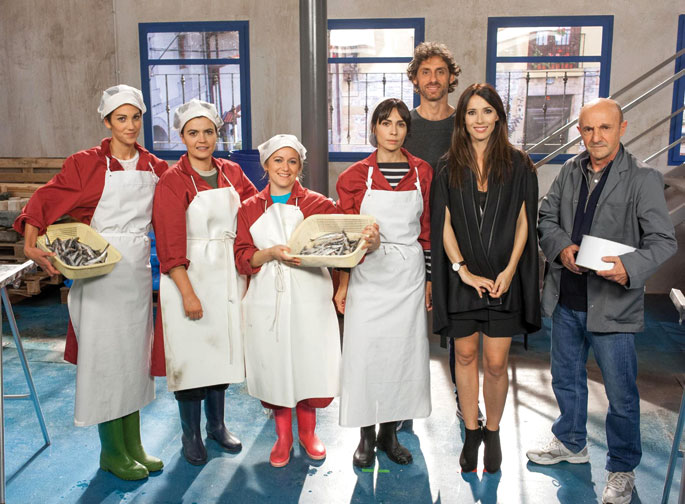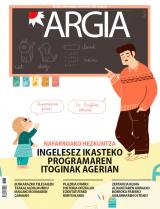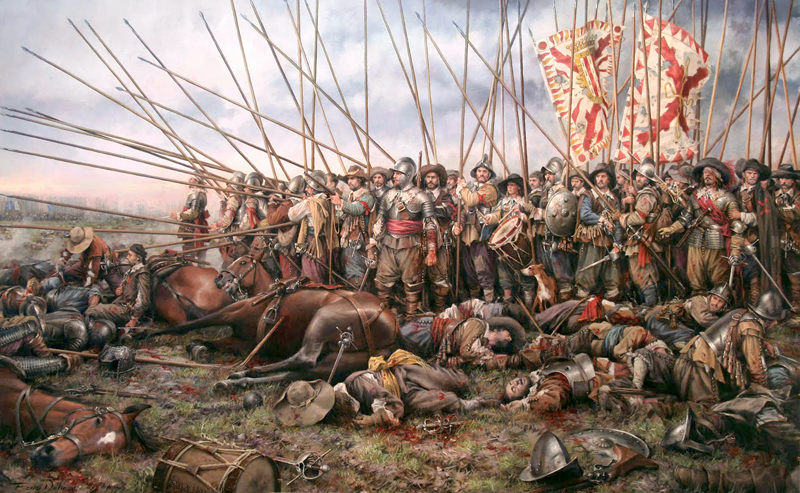Why not a series that takes away the hours of sleep in Basque?
- Just begun the first year after Goenkale, the Basque series crop is the most remote of all. As if that were not enough, the latest wagers in general have not been well received. When international productions accumulate more applause and spectators than ever. Is ETB solely responsible? Are there enough excuses if there is a lack of audience data and resources?

At the end of February 2016, teleerie in Basque is the only one that can be followed on television week after week. There are still times when three television series were broadcast simultaneously on ETB. In January they stopped issuing their penultimate bet (Aitaren Etxea) and by the end of February they have just started offering the option to remove Eskamak. The whole of the first season has been recorded in advance, and the hearings will decide whether or not the second is going to be done. So far, the recording of television series is not underway.
Hollow with many holes
There are not a few who have expressed this gap with concern. Leire Palacios, a television critic in Berria, says that along with Goenkale more than one television series has been lost. “We have lost a culture built around it: a corpus of linguistic enrichment, a school of actors, a school of writers, a school of realization, etc.” In addition, of course, there are dozens of professionals who have lost their jobs.
Leire Palacios: "This is a starting point: the encysted series that seeks to make a product capable of enriching the viewer, or obtaining acceptable data"
It goes without saying that, following the indications of Palacios, he looked at the issue from the edge of the sociolinguistics. According to Jose Luis Aranguren “Txiliku”, screenwriter in charge of Goenkale in Berria: “The color of the Basque Country gives burning. If we take the fiction off the tongue, it's over."
Writer and screenwriter Lander Garro is also concerned about the current situation, especially when one takes into account that the fans for the series have skyrocketed. “People inevitably have to resort systematically to the foreign language to satisfy their fondness. Added to this is the qualitative leap that the series have made throughout the world, both aesthetically and conceptually. And in ours, instead…”.
ETB as the principal responsible?
Urtzi Urkizu, a journalist from Berria, is following very closely the details of Basque public television in general. It says it has an obligation to offer the public varied content, including series. “The EiTB Act states that it aims to promote the Basque Country and the Basque culture, and the kara is one of the fundamental legs of the Basque culture.” It considers that the ETB brand is very weak and that, in this case, the issuance of quality series would be a great benefit for EiTB.
In this paper, he states that one should look less at the audiences and more at the product offered. “It may happen that in the first television broadcast a series does not give a very high audience data, but then it spreads a lot on the network. Being more patient wouldn’t be bad.”
In addition to the low audience, the high cost is often mentioned as a reason for not producing more series. Despite recognizing that television is expensive, Urkizu does not feel that it is sufficient reason to explain the lack of television series. “The key is how to manage money: With the money spent on some ETB2 programs, more series can be made in Basque.”
Besides ETB, Hamaika Telebista also arrives in most of the corners of the Basque Country. Director Iñaki Uria and journalist Inaxio Esnaola have stated that they do not have sufficient financial resources to carry out the project. “The lack of resources can only be overcome by a work of great will.” In Uria’s opinion, ETB should be questioned: “What I needed as an engine and an audiovisual tractor, is turned into an anchor.”
On the other hand, Urkizu does not believe that everything should be left to ETB: “Responsibility is shared. For example, public institutions can organize contests or projects so that creators can develop new quality products.”
Instead of Epoca's, Season's.
Gaizka Izagirre: "We need more ambition, we're not as small as we think"
An indicator to take into account is not the number of series that are underway to judge the health of the institution in Euskera. As for the substance, the leap between the international and the Basque series is also important. What was the last Basque series that, eager to see the next chapter, forced him to take his hours off sleep? Or what made you feel uncomfortable showing you the darkest aspects of our society?
ARGIA blogger Gaizka Izagirre, an expert in international series, believes that Basque productions are not up to what is done outside Euskal Herria. “Scarcity of resources doesn’t mean we don’t have to risk. The key is to get all that delusion out of our reality and to treat courageous stories.” It says it is time to leave the mood and the historical conflict and to work on other lines.
In the same vein, it is Lander Garro, who, from an economic point of view too, considers it to be the most reasonable: “The key is to invest in ideas, in the script, and prioritize simple stories from the point of view of the approach that do not lead to great losses from the props or the costumes. If I were in the direction of EITB, I wouldn’t do a single set of epokas.”
However, Leire Palacios does not consider that the series that can influence the historical memory is necessarily insult or daring. “It’s about knowing in which parameters the starting point is built; whether it’s about making a product capable of cracking, generating concern and somehow enriching the viewer, or producing an enquiry and cheap series that gets acceptable data. With the last bet (The Father’s House), unfortunately, neither has been achieved.”

Web Series and Amateur Work Passes
They are also series produced outside the logic of conventional television channels, including web series intended to be broadcast on Youtube or similar. From what is done in society to what is composed of known actors, there are examples of all kinds of possibilities in the network. Some of them, with very few resources, have managed to reach millions of people. This is the case of Malviv, a woman who tells about what happened in an invented neighborhood of the Andalusian capital. The first chapter was completed with a budget of 40 euros, and after the success achieved, the original series for the network has premiered on several television channels.
A number of websites in Euskera have also been launched: The Deus led by Aner Ansorena is not perfect. Current youth
Lander Garro: "There aren't many good writers here."
It is with humor that a people's peripetees carry out certain stereotypes. Urtzi Urkizu thinks we need more. “I don’t know why they don’t do more, it’s also the responsibility of creators to incorporate fresh and innovative projects.” Gaizka Izagirre also says that there are means to do this: “Today it is possible to make a production that can be seen with little money, because there are free applications and there are relatively cheap cameras on the market.”
Instead, Garro says that amateurysm is always bad, because everyday life is very expensive. “The equation is very simple, if you want to live, you need some income. I know that if you propose an initiative of this kind in the Basque world, you will all be beaten and palms of your back. You will have your sweet applause, but the refrigerator is empty.” In this sense, it finds it difficult to do web series. “Another thing is to get the script right and want to buy Australian TVs. But here there are not many good writers, and it’s normal: what they call a quarry is telling stories of María Luisa.”
Dena asmatua omen dago, eta hori horrela bada, ez da gutxi nazioartera begira jarri eta ongi kopiatzen jakitea. Film luze konplexuenen pareko aurrekontuarekin eta AEBetan ekoizten dira sona handieneko telesailak: Breaking Bad, The Wire, House of Cards… Baina Europan ere badira hona ekartzeko modukoak diren joera eta adibide egingarriagoak. Hala uste du Gaizka Izagirrek. Britainia Handian esaterako gidoi finko batetik abiatuta kapitulu gutxi batzuek osatutako “miniserie”-ek duten indarra azpimarratu du. Herrialde nordikoetako ekoizpenak ere aintzat hartzekoak iruditzen zaizkio. Bi ezaugarri dituzte: gizarte kritika ziztatzailea eta sakonki landutako pertsonaiak.
Estaturik ez duelako eta baliabide kopuruari erreparatuta, Kataluniakoa da akaso erreferentzia alderagarriena. Bertan, katalanez eta istorio oso erakargarriak kontatuz, Cities edo Polseres vermelles-en gisako telesailek arrakasta nabarmena lortu dutela dio Izagirrek. Azken horretan oinarrituta Steven Spielberg ekoizle duen Red Band Society egokitzapena egin dute AEBetan. “Zergatik sortzen du barregura hori bera euskal telesail batekin gerta litekeela pentsatze hutsak? Anbizio gehiago izan behar dugu, ez gara uste dugun bezain txikiak”.
B. It is one of the television references that marked the adolescence of A. He would like A to be an actor known as B. They both have a gang of friends that doesn't come out of the ordinary, but what differentiates is adolescence. B lived a stranger, participated in a public... [+]
Gertatuko zitzaizuen: leku guztietan sekulakoa balitz bezala iragarri duten pelikula edo telesaila ikusi ondoren, frustrazio pixka batekin, “ez zen hainbesterako” esaten bukatu duzue. Eta azkenaldian inoiz baino gehiagotan gertatzen zaizue. Lasai, ez zaudete seko... [+]






















